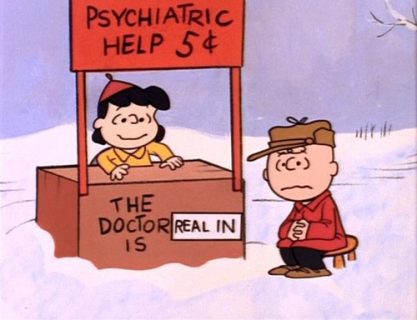
Image by frankieleon on Flickr
My doctor recommended that I try talking to a counselor. I think I want to try it, but I’m really nervous—what should I expect from my first session?
That’s a really good question. First of all, congratulations on deciding to give counseling a try! No matter what you’re dealing with, it can be really helpful to have a place to process it. Counseling is a time and a space just for YOU to talk about anything that’s going on in your life. Whether you’re dealing with stuff from your childhood or current breakup stress, a therapist can help you work through it in a healthy way and come up with strategies to cope. Some nerves are definitely understandable—It can feel a little weird at first to tell a stranger intimate details about yourself! But remember that you’re in the driver’s seat—you control the pace of the sessions, and you can share as little or as much as you want to as you establish a relationship with your counselor. What you share during your sessions is confidential and stays in the room. The only exception is if your counselor believes that you’re an immediate danger to yourself or someone else, in which case they’d work with you to ensure your safety.
Sarah McGrew, LMSW, a social worker at Mount Sinai Adolescent Health Center, helped us demystify what goes on behind the door during a first counseling session. A first session is all about getting to know you. It’s designed to minimize your nerves and help you get comfortable. The counselor will likely ask you what brought you there today and what you’re hoping to get out of counseling. This is where you can talk about what’s been on your mind, and fill your counselor in on what you want them to know about you right off the bat. Remember that you can start slow—part of the therapist’s job is to build trust and follow your lead. A big part of counseling is helping you to connect the feelings, thoughts, and behaviors that you’re dealing with. Sometimes it can be empowering just to verbalize your feelings and have someone validate them! Therapy can help you assemble a toolkit to handle everything that’s going on in your life in a healthy way. Ideally, your therapist will discuss strategies that will help you walk away from your initial session feeling hopeful!
People have a lot of different reasons for going to counseling, and there may be different types of therapy that fit best with your needs. Don’t be afraid to try out a few different therapists before you find one you click with! Some people feel reluctant to go to therapy because they’ve tried it in the past and haven’t liked it, but it can take a few efforts to find someone whose style works for you. During a first session, a therapist will also leave time for you to ask questions about their style. You can be honest and let them know what has and hasn’t worked in the past, and what you’d like to do differently this time. Finding your perfect-match therapist can be a process, but it’s worth it!
If you decide to meet with a counselor, you can go straight to Mount Sinai Adolescent Health Center, where we offer a variety of mental health services at no cost! If you’re not in New York City, you can talk to your school counselor or medical provider to get a recommendation. If you live near a university, call the psychology or psychiatry department. They may provide mental health services at reduced fees, or be able to point you in the direction of therapists who use a sliding scale for payment. Other resources for affordable counseling include local community health centers (here’s a mental health services locator), and mental health advocacy groups that most likely know where to find affordable services in your area (try NAMI or MHA). Googling “low cost or free mental health services” and your ZIP code is also a good way to find resources in your area.
